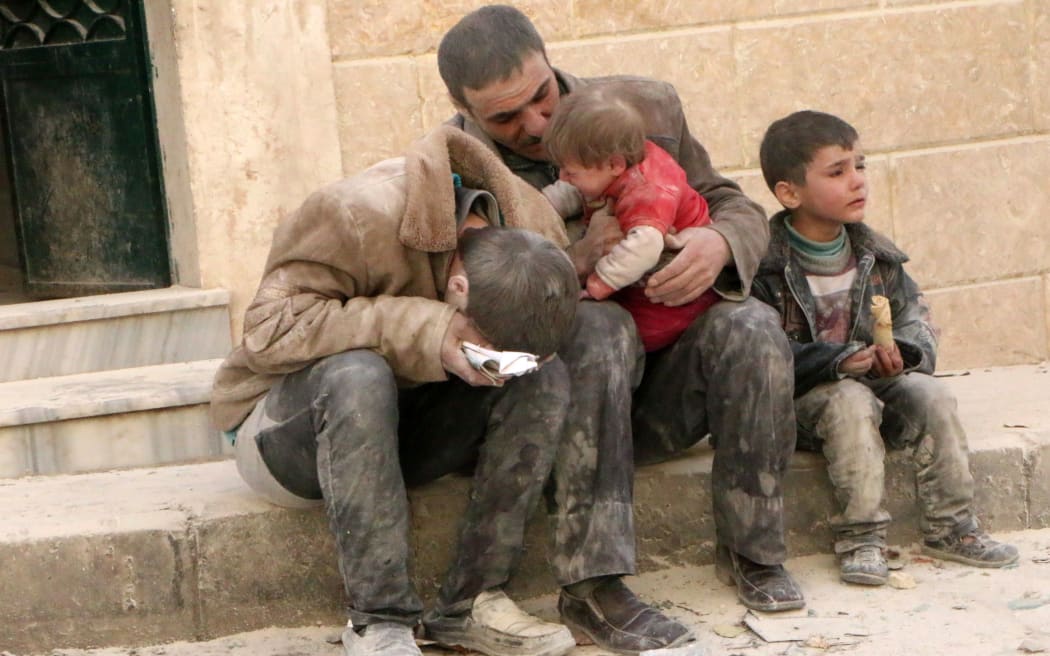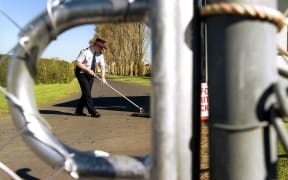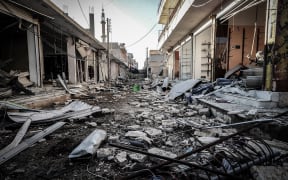A report by 21 aid agencies has accused the UN Security Council - which includes New Zealand - of failing civilians in Syria.

Residents of the northern Syrian city of Aleppo after an air strike. Photo: AFP
The international agencies - including Save the Children and Oxfam - are criticising the UN Security Council for failing to alleviate the suffering of millions of people in Syria.
They said it had been the "worst year" for civilians as the conflict enters its fifth year.
Save the Children is calling on the New Zealand Government to use its seat on the UN Security Council to push for an end to the Syrian conflict, which has killed more than 200,000 people.
Its New Zealand chief executive, Heather Hayden, said now was the perfect chance for this country to influence the international community.
New Zealand's Ambassador to the United Nations Jim McLay said last month the UN should focus on the Syrian conflict, especially helping with access to medical aid and addressing the indiscriminate attacks on civilians, including through the use of barrel bombs.
The report condemns the world's most powerful countries for not having the will to enforce their own UN resolutions on the free flow of humanitarian aid to the victims.
UN focuses on long-term aim
The UN secretary general said the long-term aim remained a political solution.
"The bitter reality is that the Security Council has failed to implement its resolutions," said Jan Egeland, secretary general of the Norwegian Refugee Council.
"Parties to the conflict have acted with impunity and ignored the Security Council's demands, civilians are not protected and their access to relief has not improved," he added.
The "Failing Syria" report by the 21 aid agencies says:
Separately, a UN-backed report by the Syrian Centre for Policy Research said four years of armed conflict, economic disintegration and social fragmentation in Syria have forced some 10 million people to flee their homes and reduced life expectancy by two decades - from nearly 76 years of age to 56.
Also on Wednesday, Medecins Sans Frontieres said a massive increase in medical assistance was urgently required.
In its report, it said from the estimated 2500 doctors who worked in Aleppo, Syria's second biggest city, before the conflict, fewer than 100 now remain.
The rest have fled, become internally displaced, or have been kidnapped or killed.
It said this has left a "catastrophic gap in expertise and experience in medical care".
- BBC




